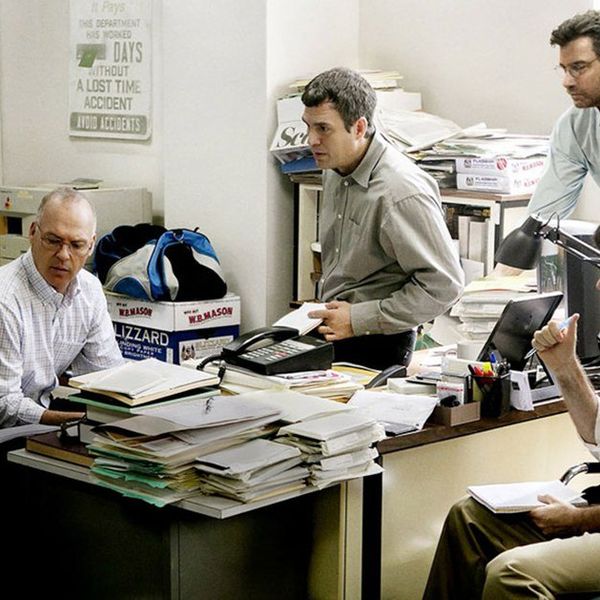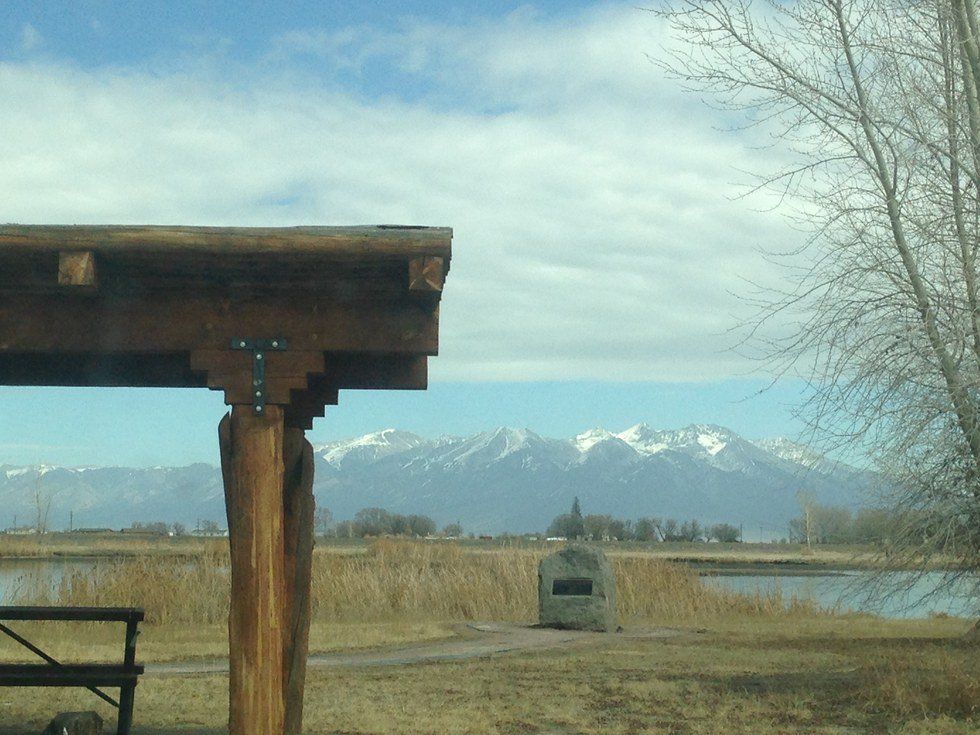I decided to continue my quest to find out more about the publishing world and more roles in the business. I start up a conversation with Michelle Williams at a Chicago Review Press who works at the company as a Managing Editor.
Chicago Review Press, founded in 1973, is an independent publisher
Below is the transcript of the interview I had with Michelle about publishing.
Rebecca Carey: What are the requirements for the job?
Michelle Williams: This is our official job listing for a project editor position:
This individual handles the book production from approved manuscript to print for approximately 20 books a year. He or she coordinates with acquisition editors, authors, copyeditors, proofreaders, indexers, and designers to shepherd books through the production process. The project editor is responsible for following schedules to meet publication dates and is directly supervised by the managing editor. He or she must be comfortable and skilled in reviewing editorial freelancers’ work as well as able to perform in-house editing as needed. They are expected to participate in meetings regarding proposals, titles, and cover evaluations.
The ideal candidate would have strong communication skills, organizational skills, project/time management skills, be detailed oriented, and have experience editing using the Chicago Manual of Style, 16th edition. A minimum of 1 year of publishing experience required.
RC: What are employers looking for on one’s resume?
MW: First and foremost I look for editorial experience of any kind. For students, this could be work on a literary magazine, school newspaper or journal, or work in a writing lab or tutoring position involving writing. Internships are also extremely valuable. For professionals, journalism experience can be helpful, but it’s preferable to find someone who has worked at a publishing company, even if in roles outside of editorial. There’s a great value in knowing the ins and outs of the book business. This also means that bookstore experience is helpful as well.
RC: Does knowing someone in the industry help with acquiring a position?
MW: I would say it definitely does. Networking is always a good idea in any industry. Publishing is a particularly small and integrated business, so a lot of people know each other or have worked together in the past. Having good recommendations from those people is a great bonus. A way to build these networks would be the various available publishing networks like Chicago Women in Publishing, Editorial Freelancers Association, or possibly Chicago Writers Conference. Open Books stores also have various events and functions that would help introduce you to people in the industry.
RC: What are your day-to-day duties?
MW: As managing editor, I have a lot of various duties! In terms of my role as a copyeditor, the day-to-day would involve meeting with acquisitions editors to discuss new projects they’re turning over to me; reviewing new projects and writing up style sheets that detail the editorial needs for the manuscript; actually reading and copyediting the manuscripts; reviewing other freelance editors’ work on other manuscripts; and working with authors to review the edits we’ve requested on their work.
RC: What is your area (or genre) of expertise?
MW: Chicago Review Press has a very wide-ranging list in terms of topics, but we have some areas we specialize in: history, popular science, biographies for children, and political topics. Within those areas, I’ve worked specifically on a lot of books on Black politics, such as the Black Panther Party history, soul music history, and the economics of chattel slavery in the founding of our country. I’ve also worked on a number of the activity books for kids, from van Gogh to Texas history. I also am the editor for our super popular author Bill Gurstelle, who works on books of scientifically based projects for workshop warriors like Backyard Ballistics and Defending Your Castle.
RC: Which story/novel, out of the ones you have edited, is the one you are the most proud of?
MW: I just finished working on the book The American Slave Coast, which I feel is an extremely important book. It’s a history of how the economic systems of the United States have deep roots in our history of slavery. I’ve worked on previous books with the author, Ned Sublette, and he’s an amazing writer who is able to convey complicated subjects in a way the average reader can easily grasp and become impassioned about.
RC: How much of a role does social media play in the industry today?
MW: I’d say it is a constantly growing role. Our marketing manager and publicists work together to manage our presence on social media such as Twitter, Facebook, and our own website, which includes a regularly updated blog. We also help our authors to set up their own author pages on Amazon or their own personal websites. Social media is a new, robust way for readers to find out about new books or authors, and we need to make sure we’re using that to the best of our abilities.
RC: What should be strengthened before entering the business?
MW: The two most important skills I need in a copyeditor are 1) editorial knowledge of Chicago Manual of Style rules, and 2) an ability to get along well with others. Copyeditors need to foremost have the skills to do their job, but then they also need to be able to smoothly work with many different people in the process, from the acquisition editor to the author to the publicist. An even temper and ability to be flexible and maintain a can-do attitude are extremely valuable.
RC: Is a master’s degree required? Is it suggested?
MW: A master’s degree is by no means required. A more specialized certificate program like the Denver Publishing Institute or University of Chicago program would be more applicable to the actual job, in my view.
RC: What is a good resource for someone who is trying to get into the business?
MW: There are various professional organizations that will help with networking, such as CWIP. I’d also recommend looking at the Editorial Freelance Association to network with freelance editors with a wide range of experience. But the number-one way to break into publishing would be to apply for internships at publishing companies. Chicago Review Press occasionally has a dedicated intern, but IPG has year-round internship positions available for students. That program rotates the interns through all the departments of IPG, including CRP, so the intern comes out with an extremely beneficial, well-rounded view of the industry. It’s great experience to put on a resume, and introduces you to myriad people who can give you a recommendation letter or help connect you with others in the industry.
RC: Is working under a deadline hard to do? Do you work under deadlines a lot?
MW: All our work is on a deadline! It can be very stressful at times, because a lot of the work depends on others doing their part in the process before you can do yours. You’re also often working with people (authors) who have other jobs and busy schedules, and you have to adjust and account for that. It’s challenging, but it’s all part of the process.
RC: How long are you typically given to finish editing a novel?
MW: We have only recently begun to work on any fiction here at CRP, but novel or nonfiction, the typical timeframe for a copyedit is about three to four weeks.
RC: What is your favorite part of a job?
MW: I love reading! I love learning about all kinds of different topics, and how that keeps my day-to-day from being too routine or boring.
RC: What is your favorite style guide? I picked up a copy of the Chicago Manuel Of Style, is that a good resource?
MW: Chicago Manual of Style is our preferred style guide. We have our own in-house guide as well that lists when and how we differ from CMS or ways in which we’ve decided to treat things CMS doesn’t cover. But generally, CMS is the “bible” we use.
RC: What do you prefer, print or eBook? Do you think that eBooks will take over the industry eventually?
MW: I like reading both, and think they each have their place in the industry. I love having books in my home on my shelves, and I will always want to own a physical copy of my most-loved titles. I also think it’s important to have print books for children. However, I have an e-reader and it’s perfect for traveling: much easier to handle on public transit on my commute and much lighter in a carry-on bag than a big pile of vacation reading! Currently, e-books account for about 25 percent of our books sales, and that seems to be where we’ve leveled off in recent years. I think e-books will continue to gain in popularity, but I don’t think print books will ever be completely lost. Too many dedicated readers love the tactile connection of a printed book.
RC: If it is a nonfiction piece on the authors own life how do you fact check?
MW: In terms of an autobiography of a more well-known figure, there are usually resources available to check for dates or names. The internet is obviously an extremely helpful tool. In terms of checking a memoir, we will usually query the author for things that may seem contradictory or questionable. There’s a certain level of trust we do have to accept with memoirs.
RC: How long did it take you to become a senior editor at Chicago Review Press?
MW: I have been working for Chicago Review Press for nine years now, and I became managing editor this year. Prior to that, I worked for Sourcebooks for about five years. So in total I’ve been in publishing for almost fifteen years.
RC: Is there any type of editing test before one would get the job?
MW: Yes, we do have a copyediting test we send to any applicants for in-house jobs or for freelancing positions.
RC: What are the best undergraduate degrees to get for the job?
MW: A BA in English is the most typical degree. All our current project editors were English majors. Journalism degrees are also common.
Michelle Williams continued to help me with my search for answers about the job and industry. I think her skills and expertise that she shared are extremely helpful, especially to someone looking at going into the business.





















